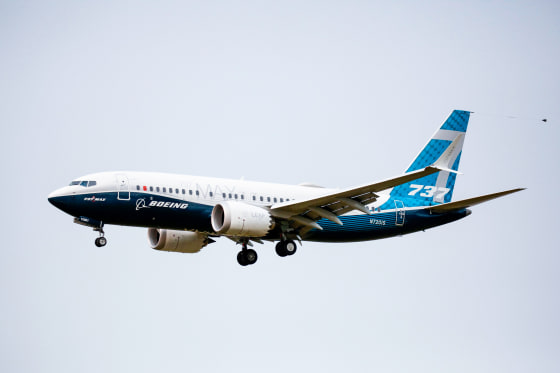
A federal judge dismissed Boeing’s plea to a criminal fraud accusation related to its 737 Max aircraft crashes.
In his ruling on Thursday, U.S. District Judge Reed O. Connor of the U.S. District Court for the Northern District of Texas voiced worry that the government-appointed monitor, which is a requirement of the plea agreement, would incorporate policies related to diversity, equity, and inclusion.
According to his writing, the Court is not persuaded by the aforementioned that the Government will not operate in a nondiscriminatory manner by selecting a monitor without taking race into account. The public’s confidence that the selection of this monitor is based only on expertise is crucial for justice in a case this size.
OConnor mandated in October that the Justice Department and Boeing furnish information on their diversity, equity, and inclusion policies at the time of the monitor’s selection.
According to a court filing on Thursday, the judge granted the Justice Department and Boeing 30 days to make a decision.
Boeing consented in July to enter a guilty plea to a criminal charge of conspiring to defraud the U.S. government by lying to regulators about the installation of a flight-control system on the Max that was later linked to the October 2018 Lion Air crash and the March 2019 Ethiopian Airlines crash. Every one of the 346 passengers on the flights died.
The Justice Department and Boeing did not immediately respond.
Family members of the victims had objected to a government-appointed monitor that was part of the plea agreement and wanted to have more say. It was referred to as a “sweetheart deal.”
One of the victim’s relatives’ lawyer, Erin Applebaum, praised the agreement. According to a statement from Applebaum, “we expect a substantial renegotiation of the plea agreement that incorporates terms truly commensurate with the gravity of Boeing’s crimes.” The DOJ needs to demand true responsibility and stop its lax handling of Boeing.
The agreement was intended to spare Boeing from a trial at a time when the business was attempting to regain its footing following a door that exploded off a plane in midair at the beginning of the year, rekindling a safety crisis at the manufacturer.
The Justice Department claimed in May that Boeing had broken a prior plea deal that was about to expire days after the door plug on the 737 Max 9 blew off on January 5. This led to the current plea agreement. In his ruling on Thursday, O’Connor stated that it is unclear exactly what Boeing has done to violate the Deferred Prosecution Agreement.
Boeing could have been fined up to $487.2 million under the amended plea deal. However, the Justice Department suggested that the court award Boeing a $243.6 million punishment, which would be half of what company paid under a prior accord.
More from CNBC:
-
The road to $100,000 What s behind bitcoin s storied 2024 run
-
Intel adds two new directors with CEO search underway
-
Remembering Art Cashin s most valuable stock market lessons and the stories behind them
Note: Every piece of content is rigorously reviewed by our team of experienced writers and editors to ensure its accuracy. Our writers use credible sources and adhere to strict fact-checking protocols to verify all claims and data before publication. If an error is identified, we promptly correct it and strive for transparency in all updates, feel free to reach out to us via email. We appreciate your trust and support!
